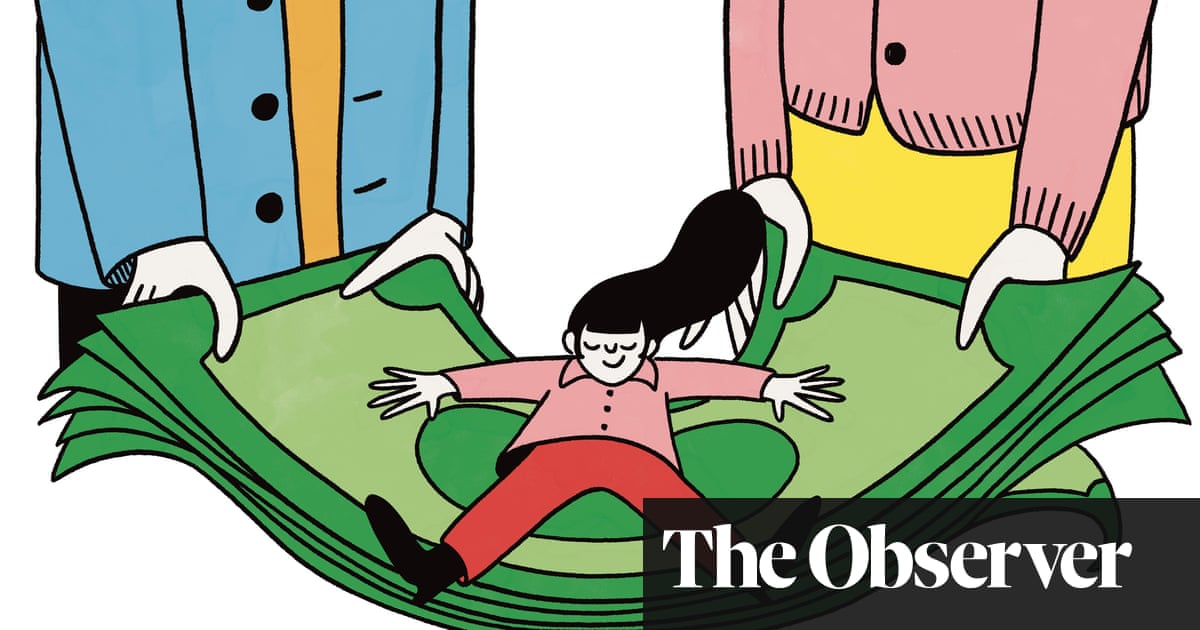- cross-posted to:
- [email protected]
- [email protected]
- [email protected]
- cross-posted to:
- [email protected]
- [email protected]
- [email protected]
You know the Bank of Mum and Dad when you see it: it’s your friend who seems broke, but always has a safety net, or who suddenly (but discreetly) acquires the deposit for a home. It’s those who stayed with their parents while they saved for a flat, or stuck it out in a profession they were passionate about even though the wages are chronically low. It’s those who do not need to consider the financial costs of having children. It’s those whose grandparents are covering nursery or university fees, with the Bank of Grandma and Grandad already driving an economic wedge between different cohorts in generations Alpha (born between 2010 and 2024) and Z (born in the late 1990s and early 2000s).
This is the picture we know, but the Bank of Mum and Dad is not just a luxury confined to the 1% – it is also evident in families like mine. I grew up in a working-class household and was the first person in my family to get a degree, but it was the fact my parents had scrimped in the 1980s to purchase properties in London (and allowed me to crash in one throughout my 20s) that has arguably been the true source of opportunities in my life.
In recent years, we have rightly widened the conversation about privilege in society. And yet how honest are we about one of the most obvious forces shaping anyone under 45: the presence or absence of a parental safety net? The truth is that we live in an inheritocracy. If you’ve grown up in the 21st century, your opportunities are increasingly determined by your access to the Bank of Mum and Dad, rather than by what you earn or learn. The economic roots of this story go back to the 1980s, but it accelerated after the 2008 financial crisis, as private wealth soared and wage growth stalled. In the 2020s, rather than a meritocracy – where hard work pays off – we have evolved into an inheritocracy, based on family wealth.



Your post points to the answer.
If people’s absolute essentials could be guaranteed: housing, healthcare, education, and food, then all the “advantages” would only affect the bonus region above that where wealth and privilege reside.
The problem is that it’s very possible for those life essentials to be threatened because other people have wealth and privilege.
If there was just a floor on this damn thing we could stop talking about all this. But American culture dictates that that floor must be squarely below the point of dignity and deprivation, so that people don’t get comfortable. Because we can’t have that. Ever. Because it’s a moral hazard to the soul. Unless you’re born rich. Then you can have comfort for free, and there’s magically no moral hazard to your soul somehow.